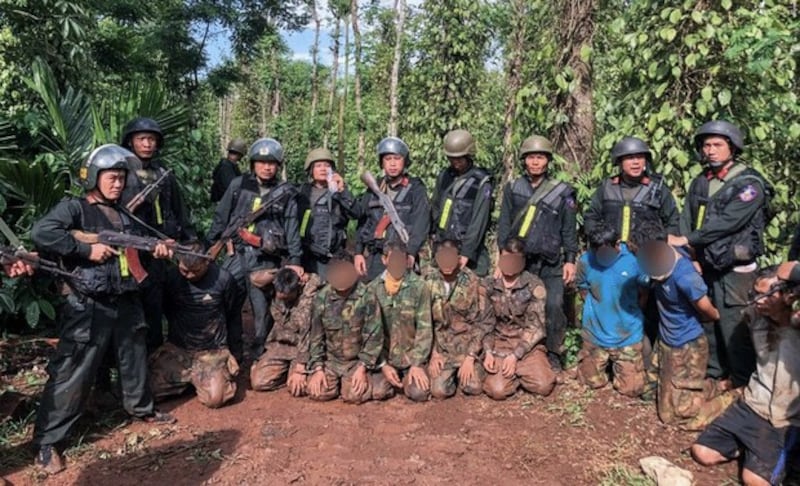More than 100 ethnic Dega, Cham and Khmer staged a protest in Washington DC against the Vietnamese government’s treatment of indigenous people in Vietnam.
The demonstrators marched to the White House and the Vietnamese Embassy on Friday to make their views heard.
The Vietnamese Montagnards represent a group of 30 different tribes in the country’s Central Highlands.
They have repeatedly clashed with the government over issues including land rights and religious freedom.
“After many years, from 1975 to 2023, 48 years, we realize that the situation of human rights and religion in Vietnam in general and with the highlanders in the Central Highlands in particular has not changed at all,” Rong Nay, Director of the Human Rights Organization of the Montagnards in North Carolina told Radio Free Asia.
“Therefore, we, including Dega people, Cham people and Khmer people, agreed to come here to spend time praying for the millions of Montagnard, Cham, Khmer and Kinh people who are in a suffering situation under Hanoi's tyrannical regime.”
Another protestor, Pastor Y'Hin Nie, told RFA that indigenous people in Vietnam followed God for hundreds of years before the Communist government came to power. However, he said the Hanoi government does not recognize the Protestant Christian Churches in the Central Highlands and continuously harasses their members.
“[We are] representing the voices of all ethnic groups in Vietnam who have been oppressed for a long time, calling on all of us to move towards freedom, no matter what, everyone must have freedom."

Following an attack on two police stations in Dak Lak province, the protesters said the Vietnamese government had increased its mistreatment of Montagnards.
In the June 11 police station attacks, two groups totaling around 40 people armed with guns and knives raided the headquarters of the People's Committees of Ea Tieu and Eatur, in Dak Lak's Cu Kuin district.
Nine people were killed, including four police officers, two commune officials and three residents.
Last month,, the Ministry of Public Security said 92 people were being investigated for terrorism against the government; failure to report a crime; concealing crimes; and organizing and brokering for others to leave, enter or stay in Vietnam illegally.
“Strictly speaking, the Communist government of Vietnam is a government with a powerful military and very strict internal control. Why did the government only know about the incident at the last minute?” asked Rong Nay.
“That's a question they certainly can't answer because they created a scenario to accuse [people] of being terrorists.
“After that incident, the security situation became even tighter for the lives of the Montagnard people, especially for farmers in rural areas.”
“The police always harass people, enter people's homes without asking permission, arbitrarily arrest people, and accuse them of working for FULRO, so from that day until now, the situation of our people has been very difficult," he said, using the acronym for the United Front for the Liberation of Oppressed Races.
In August, Vietnam issued a statement to the United Nations and other international bodies denying religious and ethnic discrimination, saying the term Montagnard, which was coined by French colonialists, no longer exists in the country because there are no Montagnards there.
Translated by RFA Vietnamese. Edited by Mike Firn.
